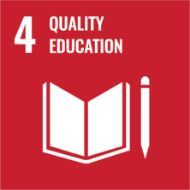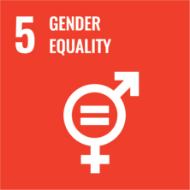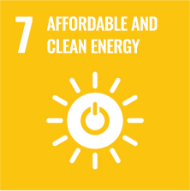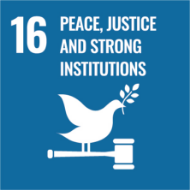Governing for sustainability
Stakeholder Engagement and Materiality
Listening to Our Stakeholders
ArchSD engages stakeholders through a variety of two-way communication channels in order to gain an in-depth understanding of their opinions, concerns, priorities and values. This ongoing communication process involves stakeholders both within ArchSD and the community.
Associations & Committees
ArchSD strives to further strengthen external stakeholder engagement by appointing representatives to provide recommendations and undertake experience sharing with professional bodies and external committees, including but not limited to:
- Steering Committee on Climate Change and Carbon Neutrality to pilot long-term strategy to combat climate change and achieve carbon neutrality in Hong Kong;
- DEVB Steering Committee and Working Group on Building Information Modelling (BIM) to compose strategies to facilitate BIM and digital technology adaptation in the construction industry;
- Joint Working Group on Modular Integrated Construction (MiC) to determine suitable technology and method of modular integrated construction in Hong Kong;
- Steering Committee on Promotion of Green Building and Renewable Energy to formulate strategies to foster green buildings and renewable energy and provide recommendations on relevant measures; and
- Task Force on Accessibility to review barrier-free design of buildings and transportation, and formulate strategies and measures on related matters.
Materiality Assessment
To identify the material ESG topics that have the greatest impact on ArchSD and our stakeholders, we undertake an annual comprehensive materiality assessment process according to the reporting principles of the GRI Standards.
This year’s materiality assessment was conducted by an independent consultant, who used a quantitative approach to identify the material topics, following the steps outlined in GRI 3: Material Topics 2021.
The year’s materiality assessment took into account the results of a questionnaire survey conducted in July 2023 among six stakeholder groups who have significant impacts on ArchSD’s operations or could be significantly affected by our operations. These stakeholder groups included the following:
Academic Groups/ Professional bodies
ArchSD Staff
Client Departments
i.e. other Government Departments
Consultants
Contractors
General Public
Material issues along with additional industry-specific issues and global megatrends were selected and identified to produce 20 potential material topics for this year’s Report. A total of 729 responses were received. The materiality results are shown in the table below.
| Categories | Potential Material Topics | Importance |
|---|---|---|
| Environment | Energy mix and efficiency | High |
| Biodiversity and ecological impacts | Mid | |
| Monitoring of greenhouse gas emissions and related environmental risks | Low | |
| Resource efficiency and circularity | Low | |
| Water efficiency and recycling | Low | |
| Social | Health and safety for all | High |
| Users’ health and safety in using the facilities | High | |
| Diverse and comprehensive staff training and development | Low | |
| Employment practice, welfare and rights | Low | |
| Community engagement | Low | |
| Governance | Identification of climate risks and response | High |
| Data security | Mid | |
| Management of ESG risks and opportunities related to ArchSD's operations | Low | |
| Management of ESG risks and opportunities related to the supply chain | Low | |
| Ethical practices | Mid | |
| Value Creation | To deliver environmentally and socially responsible projects | High |
| To use innovative and smart technologies to enhance project productivity | High | |
| Economic performance | Mid | |
| To foster the sense of purpose in serving the community | Low | |
| Indirect economic impacts | Low |
After scrutinising the feedback from all stakeholder groups, we identified 6 material topics (highest importance) that are disclosed in detail in the Report.
- Energy mix and efficiency
- Health and safety for all
- Users' health and safety in using the facilities
- Identification of climate risks and response
- To deliver environmentally and socially responsilbe projects
- To use innovative and smart technologies to enhance project productivity
Moreover, for the sake of delivering a comprehensive report on ArchSD’s sustainability performance, the following non-material topics will also be disclosed:
- Greenhouse gas emissions
- Waste management
- Water consumption
- Employment
- Staff training and development
- Non-discrimination
- Anti-corruption
- Procurement
Stakeholder Interviews
Mapping the UNSDGs

UNSDG 3 Good Health and Wellbeing
Good Health and Wellbeing
We prioritise social considerations to enhance the quality of urban living in our projects. We are also committed to fostering the wellness of our employees while simultaneously adhering to international occupational health and safety standards through our robust Integrated Management System.

UNSDG 4 Quality Education
Quality Education
We prioritise multi-disciplinary collaboration to promote the cross-fertilisation of ideas and foster sustainable development to ensure inclusive and quality education for all.

UNSDG 5 Gender Equality
Gender Equality
We value diversity in the workforce and provide equal employment opportunities.

UNSDG 7 Affordable and Clean Energy
Affordable and Clean Energy
We integrate renewable energy technologies in all our projects and implement sustainable building designs and new technologies in our offices to enhance energy efficiency.

UNSDG 8 Decent Work and Economic Growth
Decent Work and Economic Growth
We offer training opportunities to enhance the efficiency, service quality and long-term environmental and social performance of our people. We also uphold the highest health and safety standards through our policies, regular risk assessments and safety inspections.

UNSDG 11 Sustainable Cities and Communities
Sustainable Cities and Communities
We establish connections within the community by providing high-quality public buildings and facilities that prioritise safety, inclusiveness and environmental sustainability, and participate in voluntary services. We also embrace innovative technologies and construction methods to reduce our projects’ environmental impact.

UNSDG 12 Responsible Consumption and Production
Responsible Consumption and Production
We encourage waste reduction at source and recycling through innovative construction methods at sites. We also adopt green procurement and conduct regular audits to review the carbon footprint and operation practices of our offices to optimise resource efficiency.

UNSDG 13 Climate Action
Climate Action
We have established a departmental climate change sub-group to formulate and adopt project design strategies for mitigation, adaptation and resilience against climate-related hazards in our projects.

UNSDG 16 Peace, Justice and Strong Institutions
Peace, Justice and Strong Institutions
We maintain a strong corporate governance mechanism and require all contractors and suppliers to comply fully with the laws of Hong Kong and uphold high ethical standards and professional integrity.